September holds an extraordinary memory in the trajectory of children’s rights. More than 21 years ago, the United Nations General Assembly Special Session on Children (UNGASSoC) was postponed due to the tragedy of 11 September 2001 (9/11), when more than 2700 people were killed and many children orphaned instantly.
“All theatre is necessarily political, because all the activities of man (sic) are political and theatre is one of them. Those who separate theatre from politics try to lead us into error – and that is a political attitude” – Augusto Boal (1931 – 2009)
September holds an extraordinary memory in the trajectory of children’s rights. More than 21 years ago, the United Nations General Assembly Special Session on Children (UNGASSoC) was postponed due to the tragedy of 11 September 2001 (9/11), when more than 2700 people were killed and many children orphaned instantly.
I write this article from the backdrop of two significant and first in-person events post COVID-19 that South Africa hosted recently in Johannesburg in August. One was the Cradle of Creativity, an International Festival and Conference of Theatre For Young Audiences from 20 -27 August under the theme “The Stories That Move Us”. Venues included the iconic Market Theatre, the Windybrow Arts Centre and cultural hubs such as the National Children’s Theatre and Sibikwa. The other event was the XV BRICS Summit under the theme “BRICS and Africa: Partnership for Mutually Accelerated Growth, Sustainable Development and Inclusive Multilateralism”. This took place from 22-24 August in Sandton.
In their deliberations, leaders of BRICS (Brazil, Russia, India, China, South Africa) noted with great concern, the ongoing conflicts in many parts of the world, and stressed their commitment to peaceful resolutions through dialogue. Amongst other things, they affirmed the promotion of the creative economy as a global public good as adopted at the World Conference on Culture and Sustainable Development – MONDIACULT22. Meanwhile, in theatres in the same city, more than 25 productions from South Africa, Rwanda, Burkina Faso, Belgium, Germany, France, Denmark, Mexico/Argentina, Switzerland, and the Netherlands showcased at the festival. They were about, for, with and by children. During this time, I experienced the power of warm long hugs, where no words were needed as stories moved us.
Since these events, I have taken time to ponder their significance and I also followed up with some people about the stories that moved them, at the festival.
The President of ASSITEJ International Sue Giles shared that several stories that moved her were not hers to tell, but were shared with her as connections deepened across the week. “Some were hard to hear. Every show we saw from South Africa and other African nations, was a story within a story. The layers of experience, the knowledge of pain and the joy that make up the Theatre for Young Audiences (TYA) sector in South Africa lies in the heart of why it is such strong work.”
Jon Dafydd-Kidd (ASSITEJ UK) told me it was “an experience of balanced opposition” that left him wondering “why at home we are so afraid to have the important dialogues with children and young people about things that are directly impacting their life? And how has much of our art become generalised?”
He referenced an award winning production, The King of Broken Things, and said the festival had left him with three words “Context, Curiosity, Listen”.
For me, the festival reminded me of the words of Augusto Boal when he asserts that “perhaps the theatre is not revolutionary in itself; but have no doubt, it is a rehearsal of revolution!”
Consequently, I am not taking the deliberations of BRICS lightly, nor am I taking the stories that moved multitudes of audiences during the festival for granted.
Instead, I am reminded that the leadership of BRICS can take their responsibility for action around child rights and justice seriously, and that the story of 9/11 needs to be told multiple times until every child understands the impact of political and ideological conflicts on their lives and how through threatre we could choose to shape a world fit for everyone.
At the festival I met six year old Bokamoso Sekhibane and she told me she liked being at the festival. As an organisation that is committed to the UN Convention on the Rights of the Child, may all the events meant to enable Participation, Protection and Provision of Services for children be amplified every day, everywhere. This includes theatre, where we see children like Bokamoso being enabled to rehearse their desired futures, and in the process, we come closer to realising peace for all.
Lalu Mokuku
EC Member, ASSITEJ International






